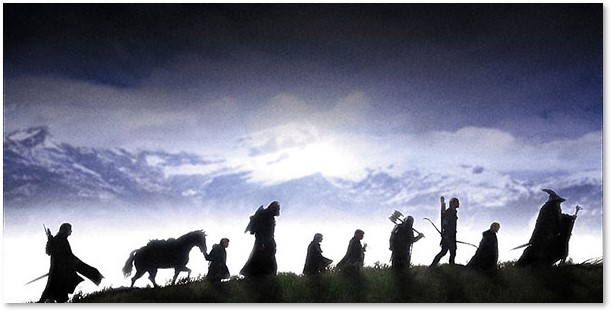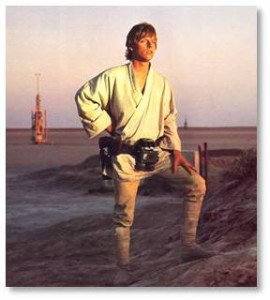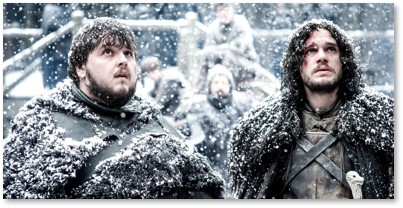If you have ever read a book, watched a movie, or seen a television program, you have an idea of what a hero (or heroine) is supposed to be. (I will use men as a default since most media heroes are male) He should be brave, strong, engaged, charismatic, and likable, The hero can be noble or common, eager or reluctant, skilled or naive, dedicated or an outsider. He can have superpowers or be a 98-pound weakling. What he cannot be is a Boring Hero.
The hero doesn’t have to be fearless—in fact, it’s better if he understands that courage comes from overcoming fear. We think a conflicted hero is fine because we can empathize with his conflict. Even a reluctant hero, one who has to be dragged kicking and screaming to kill the dragon or challenge the Big Bad, works fine for us. It’s okay for a hero to be imperfect, flawed, even uncertain of his own qualities, as long as he’s someone we enjoy spending time with.
What Makes a Hero Likable?
What makes a fictional hero likable? I think we have to be able to get inside his skin. We need to understand his challenges and his problems, empathize with his struggle, and root for him to triumph in the end.
Somehow, however, our entertainment complexes have forgotten this basic fact. They are giving us a new model of hero: one who feels no fear, expresses no emotion, and simply goes from Point A to Point Z until he is done. Even then, when Our Hero has presumably conquered evil, saved the world, or learned his big life lesson, he remains unmoved and unaffected.
I call this the trend the Rise of the Boring Hero. Two cases in point: the movie Ad Astra and the Netflix series The Witcher.
Ad Astra: The Movie
 I looked forward to seeing this movie, as I do any serious science fiction film. The fact that Ad Astra starred Brad Pitt and Tommy Lee Jones augured well for its success, as that meant the production values (Mr. Pitt also produced), script and special effects would get serious attention.
I looked forward to seeing this movie, as I do any serious science fiction film. The fact that Ad Astra starred Brad Pitt and Tommy Lee Jones augured well for its success, as that meant the production values (Mr. Pitt also produced), script and special effects would get serious attention.
The movie has one big flaw, however: Mr. Pitt’s character, Roy McBride, has a flat affect. The movie tells us early on that Mr. McBride’s heart rate has never gone above 80 and we believe it because the opening sequence shows us how coolly he handles an accident that would have reduced most people to a puddle.
After that, his and our emotional involvement go downhill. Way downhill.
The Danger of Emotional Distance
Mr. McBride tells us that he has seen rage, that he understands rage and that he has seen it in his father as well as in himself. But we have no reason to believe that, much less become involved with it because we see none of it. He speaks in a monotone. The astronaut acts as a loner, who keeps a lot of distance between himself and others. He takes on enormous physical challenges without blinking an eye. Or, presumably, raising his heart rate.
So, we watch him go from one problem to another as he seeks to find his father, without caring one way or another. Eventually, Roy McBride gets the heavy-handed and very literal message that he has to let go of his father before he can find himself. The end.
Roy McBride doesn’t engage with other people, the world around him, or even danger so we can’t engage with him. He’s a Boring Hero. That may explain why the critics liked it better than audiences did. They rated it 84% Fresh while audiences gave the movie only a 40% Liked.
The Witcher: Streaming TV
 This television series could not be more opposite in tone or substance and yet…
This television series could not be more opposite in tone or substance and yet…
The character Geralt of Rivia, known as a Witcher, is a genetically altered human trained to hunt down the dangerous and magical monsters of the world. He lives in a Medieval world so filled with monsters, demons, vampires, witches, etc. that they are just an accepted part of the landscape.
Geralt, played by Henry Cavill, works as a hired gun, a mercenary demon slayer who wields his swords and collects his pay. This story arc works fine and Henry Cavill has the build and the square-jawed looks to carry off the role. The problem is that his genetic alterations seems to have removed any emotions. That makes him a Boring Hero.
The Boring Hero
Although the Witcher rides and walks from one town to another, accepting commissions and fighting Big Bads, none of it seems to register with him. He has no involvement with the people who hire him and even seems to hold them in contempt. He keeps getting pulled into their problems all the while denying that he cares. He shows no fear of the demons he slays, and he expresses no satisfaction when comes out of it all alive, if not in one piece.
In fact, the Witcher’s most common reaction is to say, “Hmmmmm.” Unsatisfactory. I got more involved with the kids in Stranger Things when they went hunting the Demogorgon.
No Game of Thrones
The series on Neflix was supposed to fill the hole left by the end of HBO’s Game of Thrones but it’s not even close. The characters in GoT had HUGE emotions and they went over the top with those emotions more than once. We got fear, anger, disappointment, terror, weariness, betrayal, emotional seduction, manipulation, and sacrifice on a monumental scale.
However one felt about Game of Thrones, its heroes were never boring. No one contented themselves with “Hmmmmm.” Even the villains on GoT had more emotion than Geralt does.Heck, the dragons were more interesting.
A Borefest?
Entertainment Weekly called The Witcher “a borefest.” The New York Times attributed Geralt with “a wry sense of humor” that does make an occasional appearance. Is that enough? I don’t know. While The Witcher gets a 56% Rotten on the Tomatometer, audiences give it a 93% Liked. We have viewed two or three episodes and will probably try more but nothing about this series has really pulled us in.
Netflix greenlighted Season 2 before Season 1 even began airing. I think if the series wants to succeed long term, Geralt of Rivia needs to develop some charisma, big time, if he wants to stop being a Boring Hero. That means the series has to put some distance between itself and the video game developed from the novels by Andrzej Sapowski.
Who decided that heroes should be boring? I don’t know but I hope the trend ends quickly. The big production companies need to understand that heroes with no emotion are boring and boring heroes make for boring shows.
What We Like
So, what are we watching that we like?
- “Glitch,” an Australian series on Netflix about seven people who rise from the dead. No, they are not lurching decomps seeking brains. They’re people who look just like they did when they were alive. Only, for some of them, that happened a long time ago. They don’t remember who they are, why they got a second life, or even that they were dead. But someone else is trying to make sure they go back where they came from.
- “The Expanse,” for my money this is the best science fiction program ever to appear on television. Now that it has moved from SyFy to Amazon. the production values have ramped up and the science is mostly spot on.
- “Star Trek Discovery,” for Amazon’s wholly different approach to the Trek Universe. Talk about emotions! These characters operate far from the goody-goody, rule-following, buddy-buddy crew we all loved. And Jason Isaacson as Captain Lorca is channeling his edgy, unpredictable Hap from The OA. You never quite know what’s going on with him — and that’s not boring.
- “The Marvelous Mrs. Maisel,” season two. Midge waits in the wings until we finish the first three series.
- “The Crown,” and we just finished the new season. We learn some history with every episode and they somehow make seemingly insignificant events riveting.



